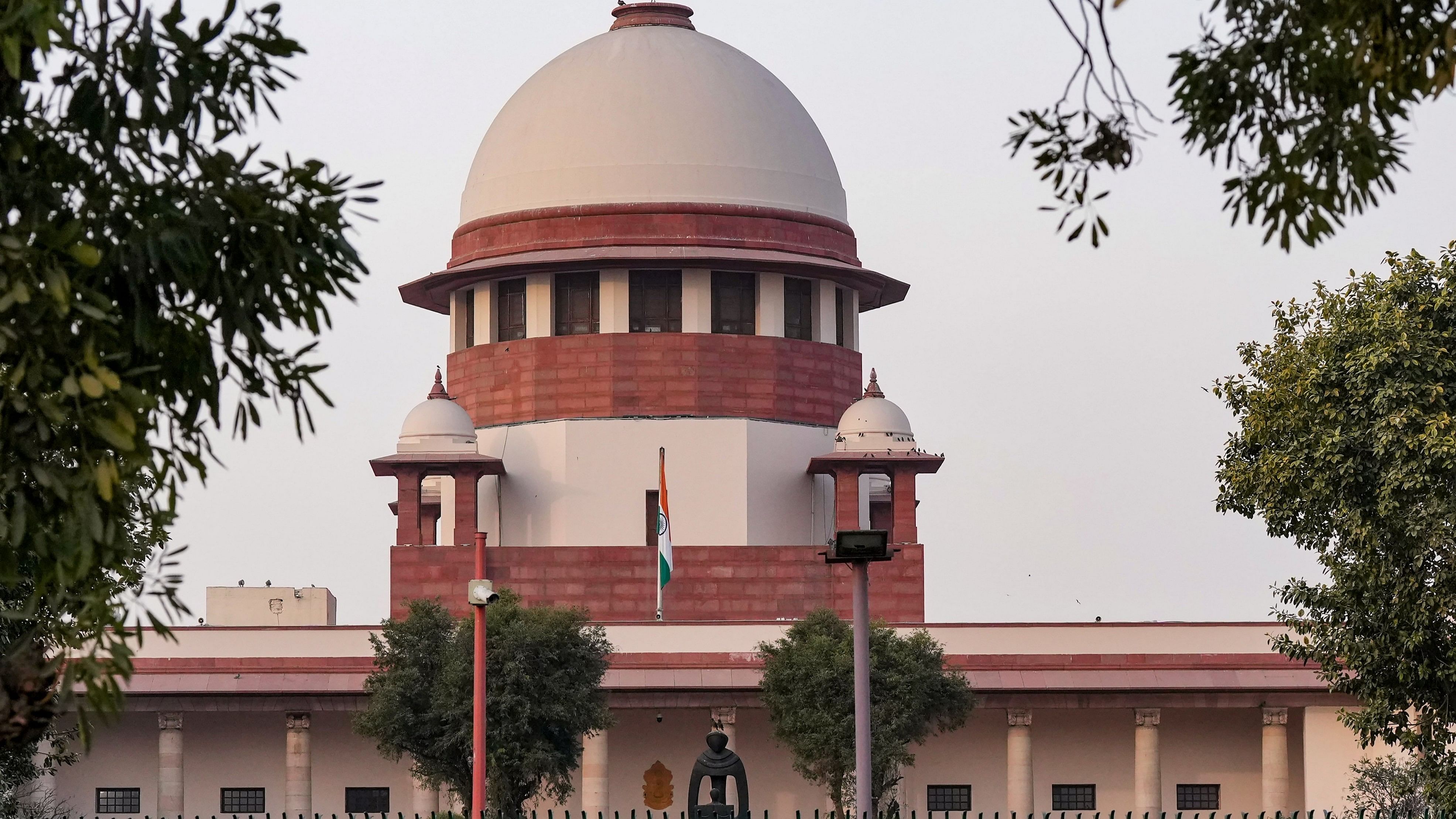
The Supreme Court of India.
Credit: PTI File Photo
New Delhi: The Supreme Court has dismissed a review petition against its July 25 judgment which held that States have got legislative competence to levy tax on mineral-bearing lands.
By a majority view of 8:1, a nine-judge bench led by Chief Justice of India D Y Chandrachud said there is no error apparent on the face of the record in the judgment.
In its order of September 24 order, the court said, "No case for review under Order XLVII Rule 1 of the Supreme Court Rules 2013 has been established. The review petitions are, therefore, dismissed."
The court also rejected the application for open court hearing in the matter.
Justice B V Nagarathna, who had dissented with the original judgment, however, felt grounds for review petition is made out.
The other judges in the bench are Justices Hrishikesh Roy, Abhay S Oka, J B Pardiwala, Manoj Misra, Ujjal Bhuyan, Satish Chandra Sharma and Augustine George Masih.
According to SC rules, the review petition is considered by judges in chamber inside the chambers without presence of counsel.
The Union government and several others, including mining companies sought review of the judgment.
On July 25, in a big boost to States revenues, the Supreme Court's nine-judge bench had held that States have got legislative competence to levy tax on mineral-bearing lands, and distinguished such a tax from royalty, which is just a contractual consideration paid by the mining lesse to the lessor for enjoyment of mineral rights.
By a majority view of 8:1, the bench upheld the power of the states to impose tax, saying royalty paid by mining lease holders to the central government is not a tax.
The apex court also declared the Mines and Minerals (Development and Regulation) Act 1957 do not limit the power of the States to impose the tax.
It pointed out any dilution in the taxing powers of the State legislatures will necessarily impact their ability to raise revenues, which in turn will impede their ability to deliver welfare schemes and services to the people.
"The ability of the state governments to invest in physical infrastructure, health, education, human capacity, and research and development is directly co-related to the raising of government revenues. Constitutional courts have to be cognisant of this context while adjudicating on issues affecting the taxing powers of the State legislatures," the bench had said.
Justice Nagarathna, however, had dissented with the majority view and held that royalty is in nature of tax. She had felt allowing States to impose tax would lead to a "breakdown of the federal system and under the constitution in the context of mineral development and exercise of mineral rights. It would also lead to a slump in mining activity… another impact of this and unhealthy competition to obtain mining leases in states, which have the minerals."
The majority judgment authored by the CJI, had then said, “The liability to pay royalty arises from the contractual conditions of the mining lease. The payments made to the government cannot be deemed to be a tax merely because of the statute for their recovery as arrears.''
The judgment came as a boon for mineral rich States, including Karnataka, Andhra Pradesh, Odisha, Jharkhand, West Bengal Chhattisgarh, Madhya Pradesh, and Rajasthan.
The matter arose out of more than 80 appeals filed by different state governments, mining companies and public sector undertakings.
